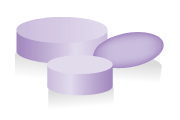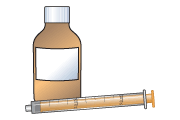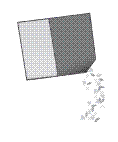Metformin for diabetes
This leaflet is for parents and carers about how to use this medicine in children. Our information may differ from that provided by the manufacturers, because their information usually relates to adults. Read this leaflet carefully. Keep it somewhere safe so that you can read it again.
If your child starts to breathe very fast and deeply and becomes dizzy, drowsy (sleepy) and confused, stop giving this medicine and take your child to hospital or callan ambulance straight away, as they may be suffering from a rare reaction to metformin called lactic acidosis.
Name of medicine
Metformin hydrochloride
Brand names: Glucophage, Metsol
Why is it important for my child to take Metformin?
Your child has been prescribed metformin because their diabetes is not fully controlled even when eating a strict diet. Metformin should help to control your child’s blood sugar levels, in combination with a controlled diet.
What is Metformin available as?
- Tablets: 500 mg, 850 mg
- Liquid medicine: 500 mg in 5 mL
- Oral powder: 500 mg per sachet, 1g per sachet; these contain aspartame
When should I give Metformin
- Metformin is usually given once a day with or straight after a meal. This is usually in the morning.
- If your child needs a higher dose of metformin, they may need to take it two or three times each day, with or straight after a meal. Ideally these times are six hours apart.
Give the medicine at about the same time each day so that this becomes part of your child's daily routine, which will help you to remember.
How much should I give?
Your doctor will work out the amount of Metformin (the dose) that is right for your child. The dose will be shown on the medicine label.
Your doctor may suggest that your child starts with a low dose. They may then increase the dose as your child gets used to the medicine and depending on how they respond to it. Your doctor will explain what to do. If you are not sure how much to give, check with your doctor, nurse or pharmacist.
It is important that you follow your doctor’s instructions about how much to give.
How should I give Metformin?

Tablets
- Tablets should be swallowed with a glass of water, squash or juice. Your child should not chew the tablet.

Liquid medicine
- Shake the medicine well.
- Measure out the right amount using an oral syringe or a medicine spoon. You can get these from your pharmacist. Do not use a kitchen teaspoon as it will not give the right amount.

Oral powder
- Open the sachet and pour the contents into 150 mL of water in a cup.
- Stir well until all the powder has dissolved and the mixture is clear or slightly hazy.
- You can add fruit squash or juice to the drink if your child does not like the taste. The medicine will still work properly.
- Make sure your child drinks it all. If they cannot drink it all in one go, they can drink it over about 30 minutes. It may help to use a straw.
- If your child does not need to take the full amount in one sachet, put the correct amount into a cup and make sure your child drinks it all. Throw away the liquid that is left over.
When should the medicine start working?
Metformin will start working straight away, although you will not see any difference in your child.
What if my child is sick (vomits)?
- If your child is sick less than 30 minutes after having a dose of Metformin, give them the same dose again.
- If your child is sick more than 30 minutes after having a dose of Metformin, do not give them another dose. Wait until the next normal dose.
If your child is sick again, seek advice from your family doctor, nurse, pharmacist, or hospital. They will decide what to do based on your child’s condition and the specific medicine involved.
What if I forget to give it?
- If you usually give it once a day in the morning: Give the missed dose when you remember during the day, as long as this is at least 12 hours before the next dose is due.
- If you usually give it twice or three times a day: Give the missed dose as soon as you remember, as long as this is at least 4 hours before the next dose is due. If you remember after that time, do not give the missed dose, just give the next dose as usual.
Make sure you give the missed dose with or just after food (two biscuits or a slice of toast is enough) or a meal.
Never give a double dose of Metformin.
What if I give too much?
You are unlikely to do harm if you give an extra dose of metformin by mistake. It is possible that your child’s sugar levels may be lowered. If they are dizzy, jittery or drowsy (sleepy), check their blood sugar level straight away. If you are concerned that you may have given too much, contact your doctor or local NHS services (details at end of leaflet). Have the medicine or packaging with you if you telephone for advice.
If your child feels dizzy or light-headed or faints, they may have had too much Metformin. Give them a sugary drink and call an ambulance or take them to hospital straight away if they do not recover immediately. Take the medicine container or packaging with you, even if it is empty.
Are there any possible side effects?
We use medicines to make our children better, but sometimes they have other effects that we don’t want (side effects).
Side effects you must do something about
If your child starts to breathe very fast and deeply and becomes dizzy, drowsy (sleepy) and confused, stop giving this medicine and take your child to hospital or call an ambulance straight away, as they may be suffering from a rare reaction to Metformin called lactic acidosis.
Other side-effects you need to know about
Your child may get stomach ache, feel sick (nausea) or be sick (vomit), or get diarrhoea when they first start taking Metformin. This should wear off after a few days as your child gets used to the medicine. If it is still a problem after 2 weeks, or you are worried, contact your doctor.
Your child may feel less hungry and they may say things taste different. This should wear off after a few days.
Your child may develop itchiness or a rash. Try applying a moisturising cream or anti-itch cream. If this does not help, or your child develops small blisters, contact your doctor, in case your child is allergic to Metformin.
There may sometimes be other side effects that are not listed above. If you notice anything unusual and are concerned, contact your doctor. You can report any suspected side effects to a UK safety scheme at mhra.gov.uk/yellowcard
Can other medicines be given at the same time as Metformin?
- You can give your child medicines that contain paracetamol or ibuprofen, unless your doctor has told you not to.
Check with your doctor or pharmacist before giving any other medicines to your child. This includes herbal and complementary medicines.
Is there anything else I need to know about this medicine?
Keep all your clinic appointments, as your doctor or nurse needs to check how your child is doing.
- If your child is very thirst, needs to pass urine (wee) very frequently or is very tired or weak, contact your doctor as the dose of metformin may need to be changed.
- Your doctor may recommend that you regularly check the level of sugar in your child's blood or urine (wee). Your doctor or nurse will show you how to do this.
- If your child has any surgery, including dental surgery, tell the doctor or dentist that they are taking metformin.
General advice about medicines
- Try to give medicines at about the same times each day, to help you remember.
- If you are not sure a medicine is working, contact your doctor but continue to give the medicine as usual in the meantime. Do not give extra doses, as you may do harm.
- Only give this medicine to your child. Never give it to anyone else, even if their condition appears to be the same, as this could do harm.
- Make sure that you always have enough medicine. Order a new prescription at least 2 weeks before you will run out.
- Make sure that the medicines you have at home have not reached the ‘use by’ date on the packaging. Give old medicines to your pharmacist to dispose of.
If you think someone else may have taken the medicine by accident, contact your doctor straight away.
Where should I keep this medicine?
- Keep the medicine in a cupboard, away from heat and direct sunlight.
- It does not need to be kept in the fridge.
- Make sure that children cannot see or reach the medicine.
- Keep the medicine in the container it came in.
Who to contact for more information?
Your child’s doctor, pharmacist or nurse will be able to give you more information about Metformin and about other medicines used to treat diabetes.
England: NHS 111
Tel 111
www.nhs.ukScotland: NHS 24
Tel 111
www.nhs24.scotNorthern Ireland: NI Direct
Wales: NHS 111 Wales
Tel 111
www.111.wales.nhs.ukDiabetes UK
0345 123 2399
www.diabetes.org.uk/Juvenile Diabetes Research Foundation
020 7713 2030
jdrf.org.uk/Copyright disclaimer
Version [1]. © NPPG, RCPCH and WellChild, all rights reserved. Review by August 2016.
The primary source for the information in this leaflet is the British National Formulary for Children. For details on any other sources used for this leaflet, please contact us through our website, www.medicinesforchildren.org.uk.
We take great care to make sure that the information in this leaflet is correct and up-to-date. However, medicines can be used in different ways for different patients. It is important that you ask the advice of your doctor or pharmacist if you are not sure about something. This leaflet is about the use of these medicines in the UK, and may not apply to other countries. The Royal College of Paediatrics and Child Health (RCPCH), the Neonatal and Paediatric Pharmacists Group (NPPG), WellChild and the contributors and editors cannot be held responsible for the accuracy of information, omissions of information, or any actions that may be taken as a consequence of reading this leaflet.
